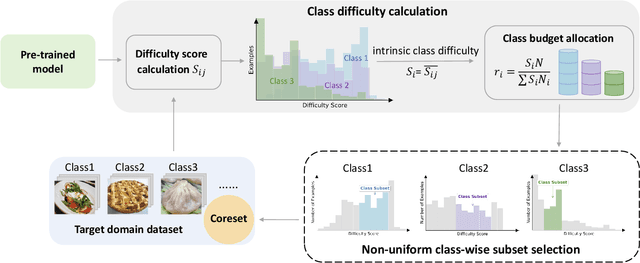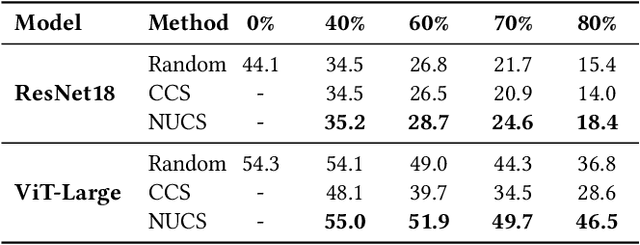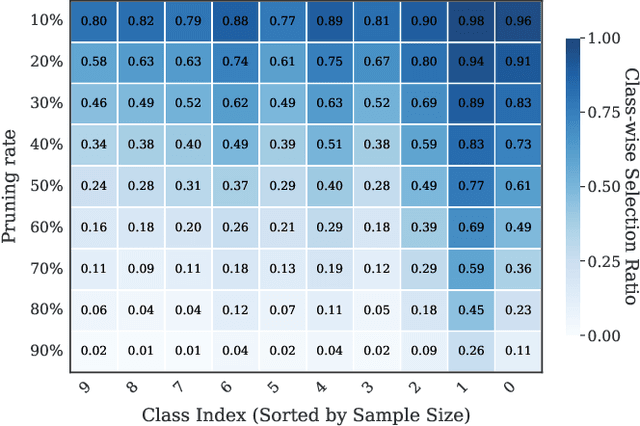Non-Uniform Class-Wise Coreset Selection: Characterizing Category Difficulty for Data-Efficient Transfer Learning
Paper and Code
Apr 17, 2025



As transfer learning models and datasets grow larger, efficient adaptation and storage optimization have become critical needs. Coreset selection addresses these challenges by identifying and retaining the most informative samples, constructing a compact subset for target domain training. However, current methods primarily rely on instance-level difficulty assessments, overlooking crucial category-level characteristics and consequently under-representing minority classes. To overcome this limitation, we propose Non-Uniform Class-Wise Coreset Selection (NUCS), a novel framework that integrates both class-level and instance-level criteria. NUCS automatically allocates data selection budgets for each class based on intrinsic category difficulty and adaptively selects samples within optimal difficulty ranges. By explicitly incorporating category-specific insights, our approach achieves a more balanced and representative coreset, addressing key shortcomings of prior methods. Comprehensive theoretical analysis validates the rationale behind adaptive budget allocation and sample selection, while extensive experiments across 14 diverse datasets and model architectures demonstrate NUCS's consistent improvements over state-of-the-art methods, achieving superior accuracy and computational efficiency. Notably, on CIFAR100 and Food101, NUCS matches full-data training accuracy while retaining just 30% of samples and reducing computation time by 60%. Our work highlights the importance of characterizing category difficulty in coreset selection, offering a robust and data-efficient solution for transfer learning.
 Add to Chrome
Add to Chrome Add to Firefox
Add to Firefox Add to Edge
Add to Edge